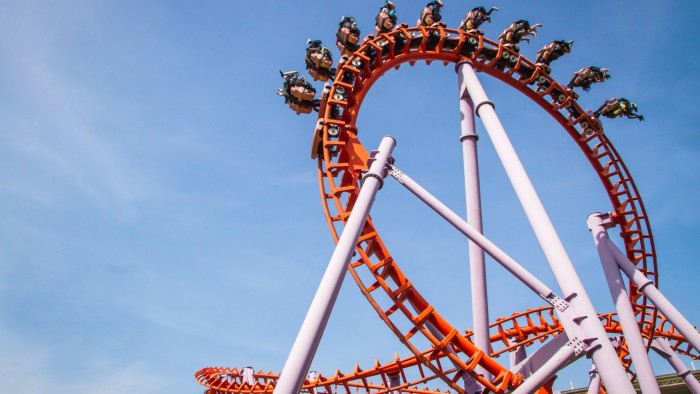Stay informed with free updates
Simply sign up to the Equities myFT Digest — delivered directly to your inbox.
We’ve looked before at how a few great individual stocks explain almost all cumulative wealth gains from equity market investing. Investors with the luck smarts to identify, buy, and hold these stocks did very well. But how bumpy was the ride?
Michael Mauboussin and Dan Callahan took a look at the data for 6,588 US stocks since 1985 in a report last month for Morgan Stanley. We’ve belatedly got around to reading it properly, and the results are interesting.
As a reminder, Professor Bessembinder of Arizona State University studied around 28,600 companies listed in the US between 1926 and 2024. As well as finding that most stocks failed to match returns from US T-bills, he found that 2 per cent of them produced 90 per cent of the market’s aggregate wealth creation.
The S&P 500 has taken a number of downward lurches since 1985. The dotcom bust wiped more than 40 per cent off valuations, the global financial crisis more than 50 per cent:
And sure, it makes sense that individual shares are going to be far more volatile than a broadly diversified index of stocks.
But we were still surprised to learn from Mauboussin and Callahan that the *median* stock has, since 1985, experienced a drawdown of 85 per cent. And this median stock never quite makes a full recovery, although it does claw its way back to 90 per cent of its high-water mark.
Sure, the average stock recovers, and goes on to triple its pre-crash valuation. But that’s because the average includes superstar stocks like Amazon, Apple and Nvidia — which fell 95 per cent, 83 per cent and 90 per cent in value during the period respectively, before bouncing back and rallying beyond their initial highs.
The authors put together a table showing the fate of all stocks in their analysis, and of course we had to turn it into a dataviz.
It’s a fair reminder that being pretty much left for dead is a thing that happens to most stocks. Or as the authors quote Charlie Munger:
if you’re not willing to react with equanimity to a market price decline of 50 per cent 2 or 3 times a century, you’re not fit to be a common shareholder.
Of course, most stocks aren’t held directly by people. They’re held by pension funds, insurers, banks, firms, mutual funds, that sort of thing. Maybe the professionals can avoid deep drawdowns while still outperforming?
Looking just at mutual fund data, Mauboussin and Callahan reckon not. From a universe of around 1,000 US equity mutual fund returns since 2000 they found that the top 20 funds experienced an average drawdown of 60 per cent. And the very best fund took a hit of 68 per cent on its way to greatness.
In fact, even with perfect foresight, any long-term investor is going to get smashed up from time to time.
To prove it they point to a paper written almost a decade ago by Wesley Gray, CEO of Alpha Architect, an asset management firm. Gray assembled perfect foresight stock portfolios every five years starting in 1927. The first portfolio took a 76 per cent hit along the way, leading Gray to argue that “even God would get fired as an active investor”.
Losing three-quarters of a client’s money is never a good look. But if the market is down just as much, the poor result is not often a firing offence. FT Alphaville checked through the top 10 drawdowns in the Gray study and found that seven of them not only lost a ton of money, but also underperformed weak markets — by an average 650 basis points. So we’ve got some sympathy with Gray’s view.
So when your fund manager underperforms and tells you they reckon they’ll make it back and more if you just keep paying them fees, do you trust them?
Most people do not. This killer chart from McKinsey’s 2023 North American asset management study illustrates just how patient mutual fund punters are with their chosen active mutual fund manager:

Punters are not in fact patient. Fund managers with three year performance numbers outside the top decile — as well as those with funds having particularly high charges — can expect outflows.
Where does this leave us? If you’ve decided that your manager has godlike stockpicking abilities, you should probably be kept away from important decisions, heavy machinery, and seek immediate help. But to be consistent, you should probably also omit sacking them when they deliver appalling short-term performance numbers.
Who knows, maybe even Cathie Wood will bounce back?
https://www.ft.com/content/35a9594b-8998-4149-a145-77f17b327717




